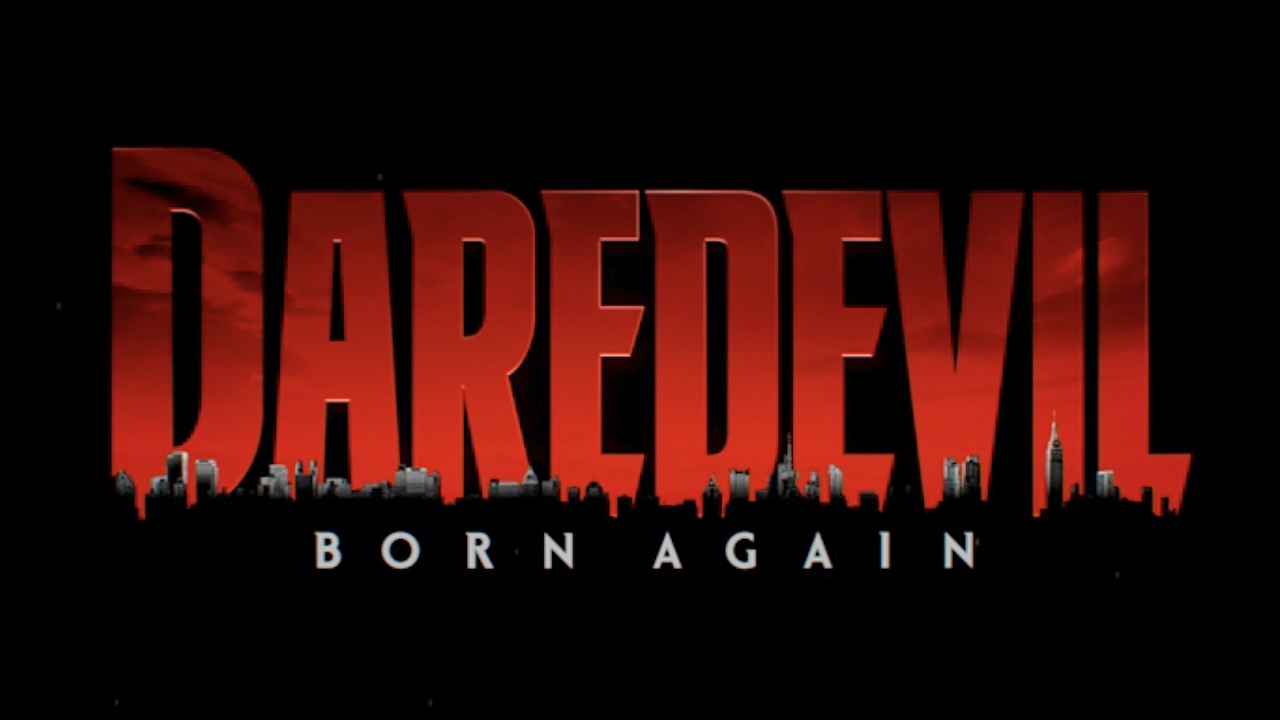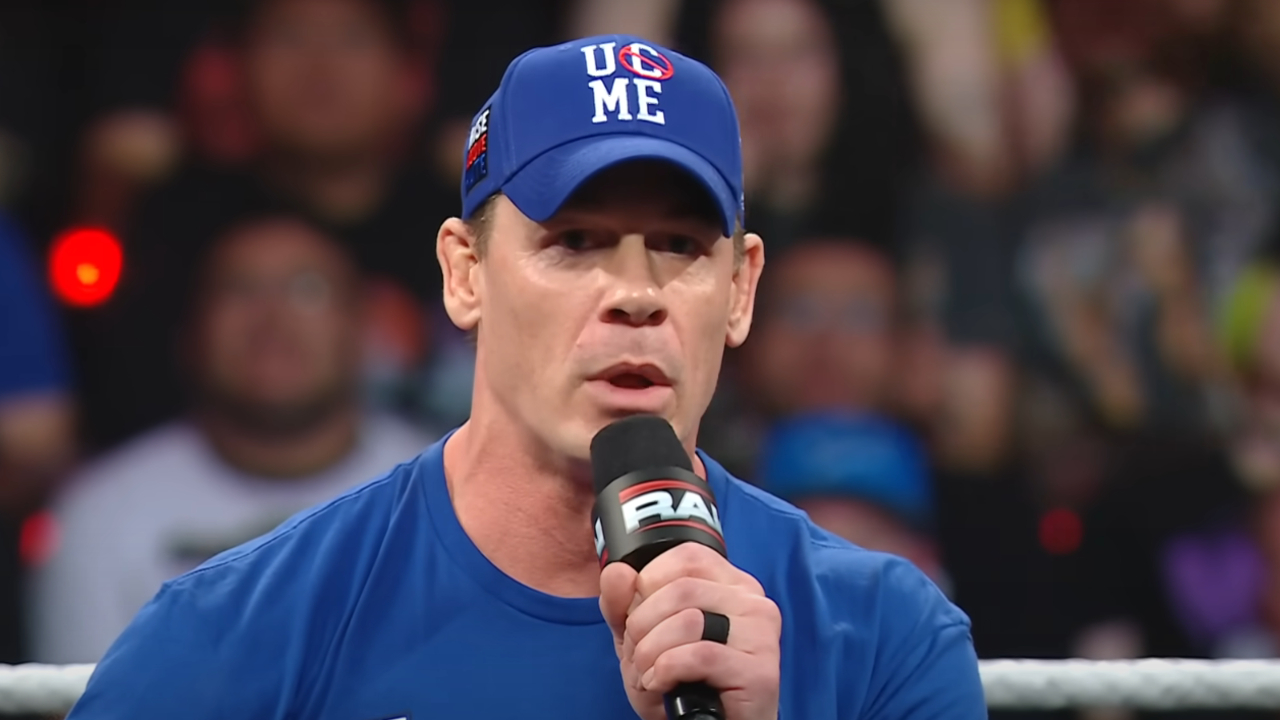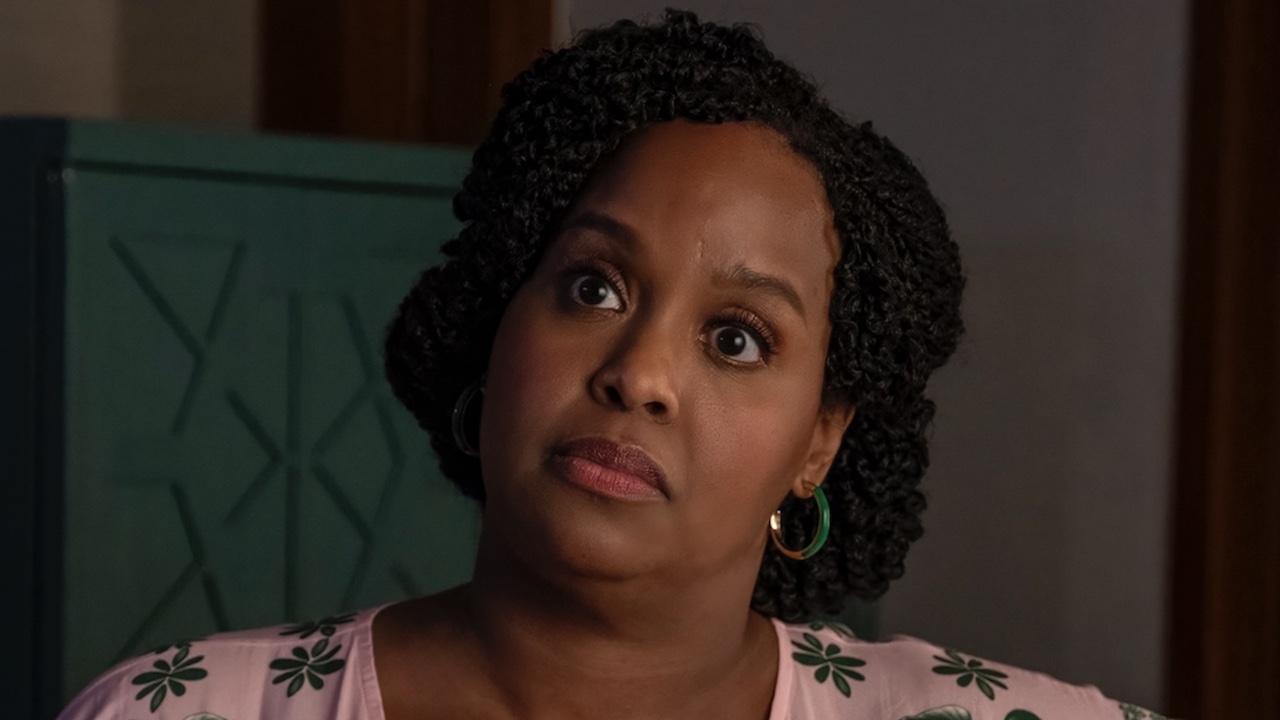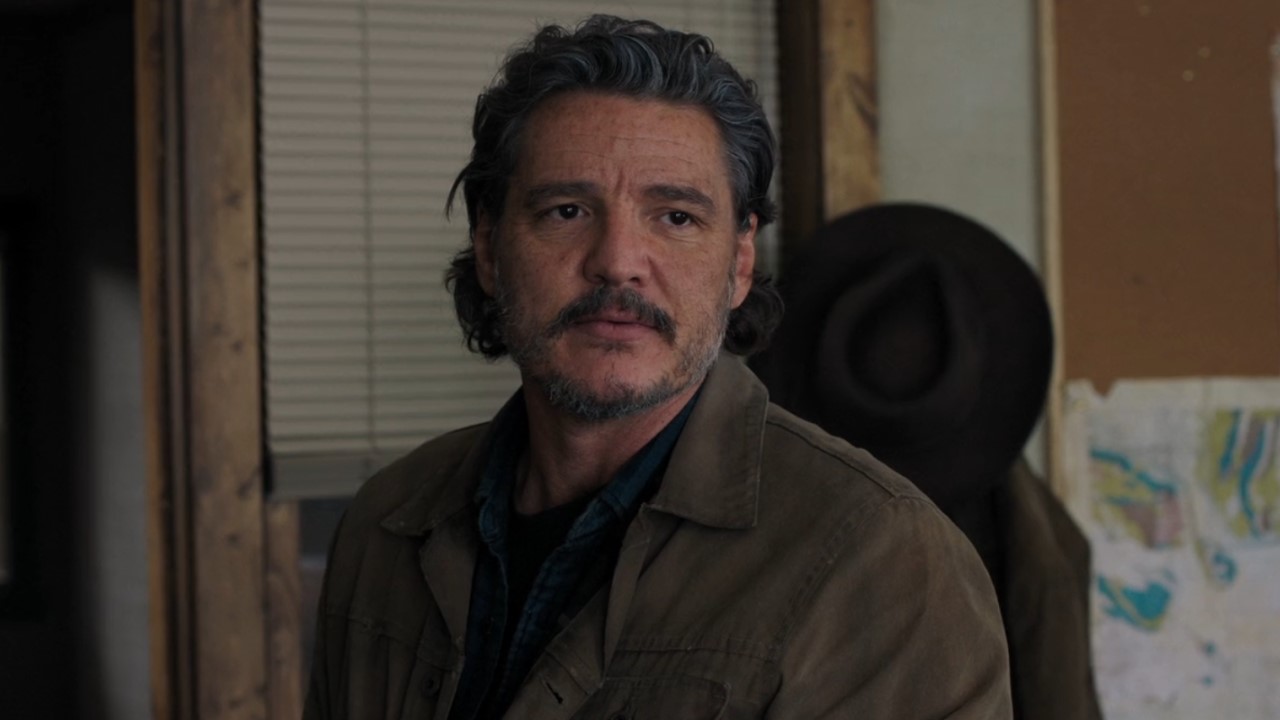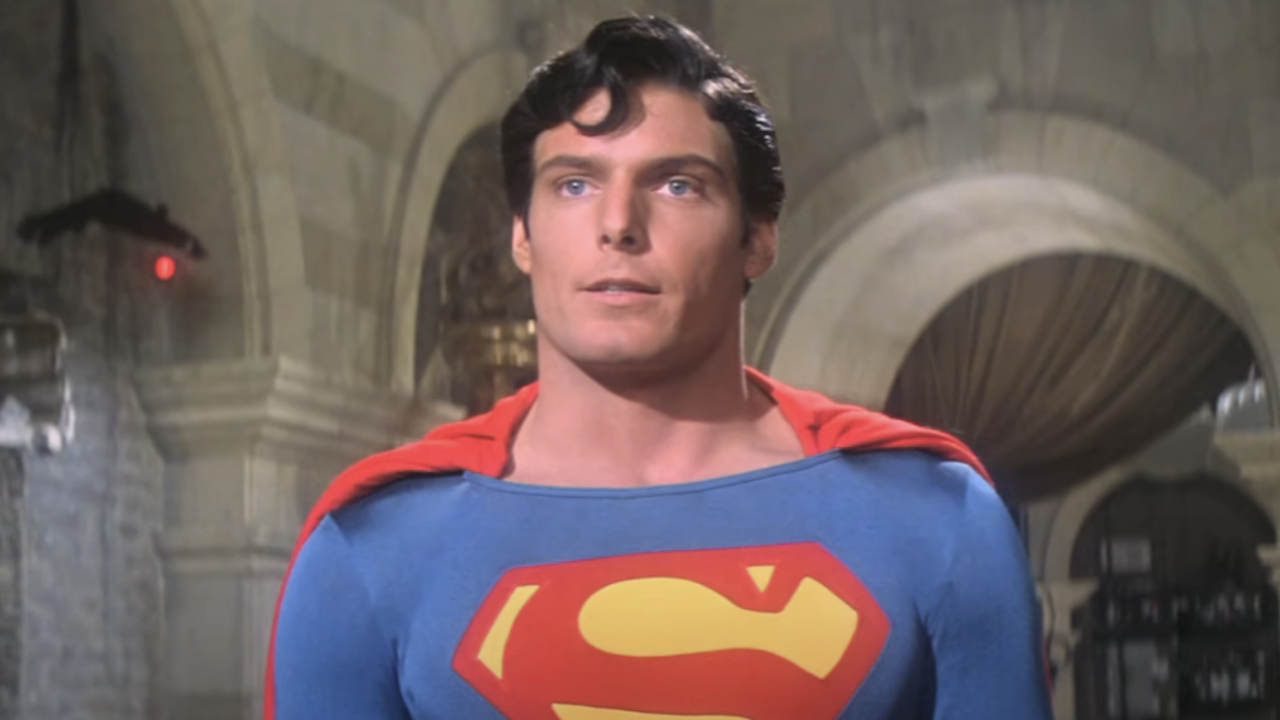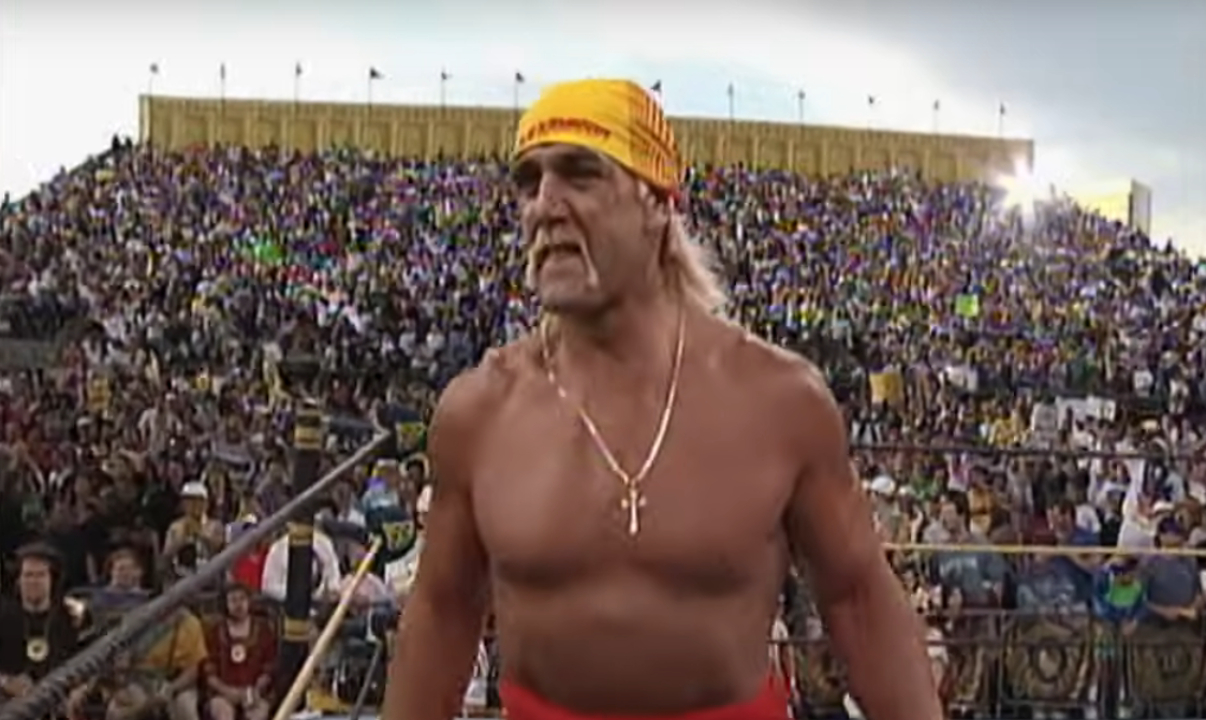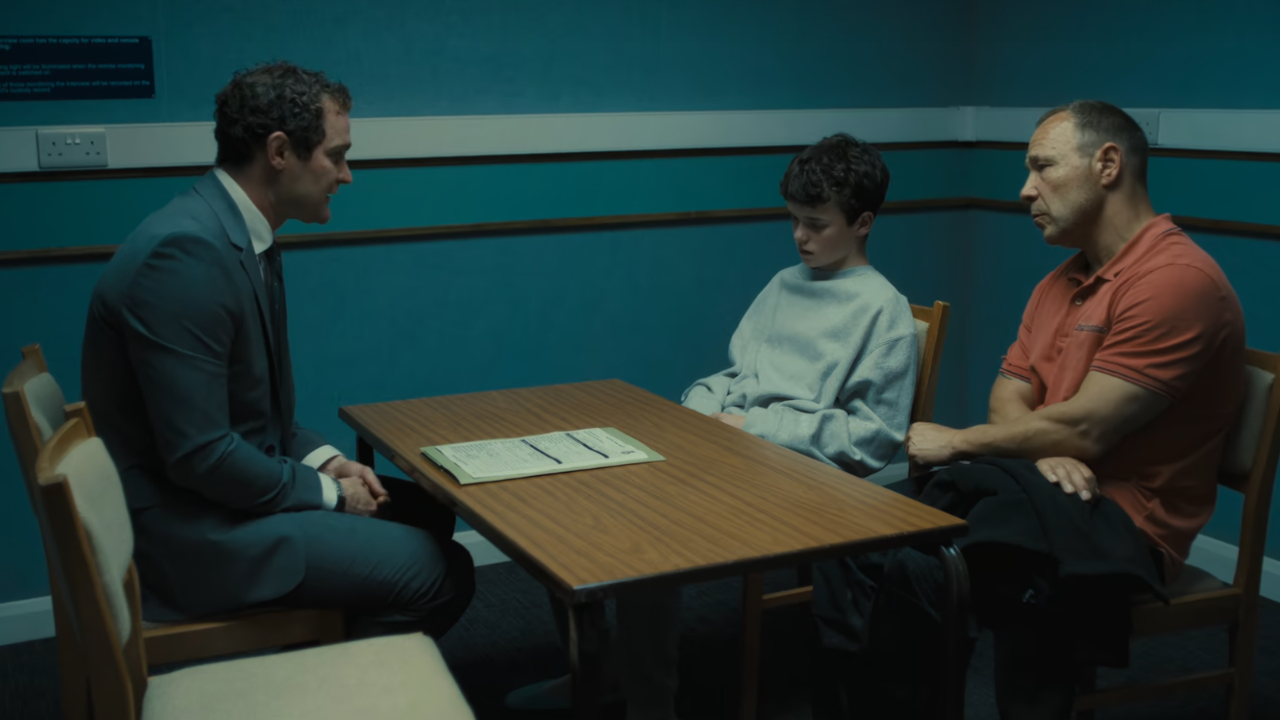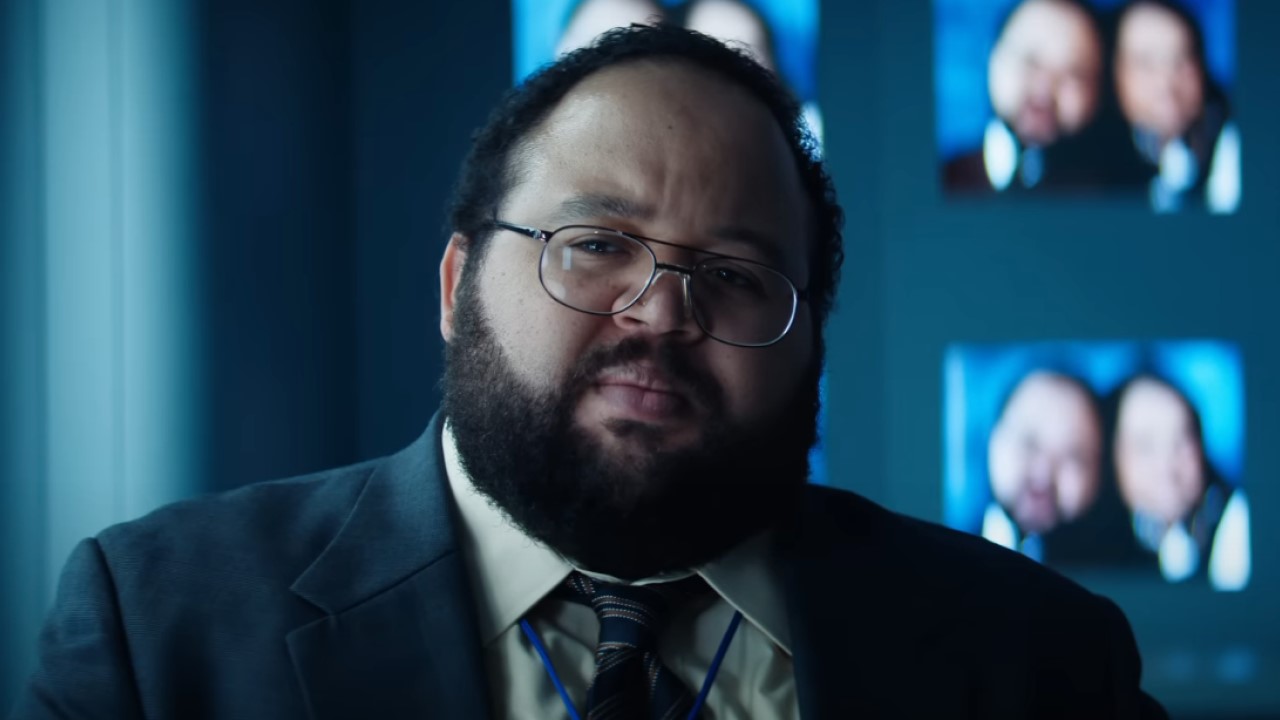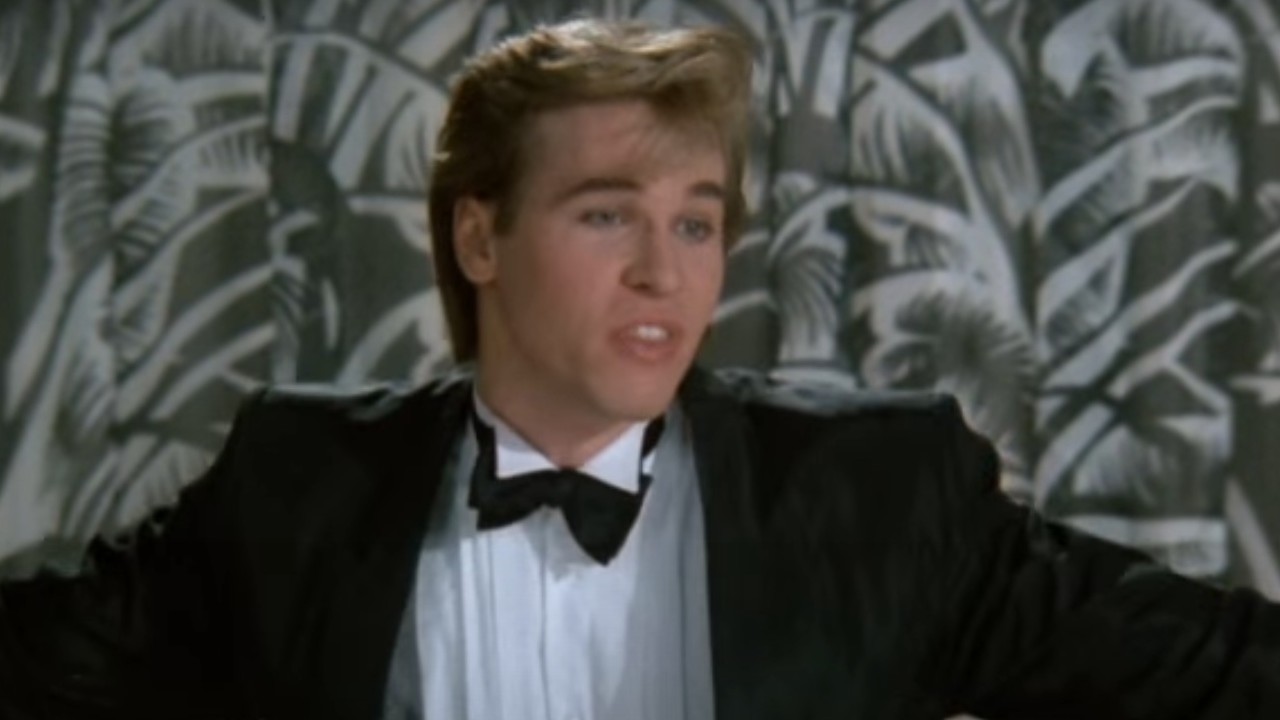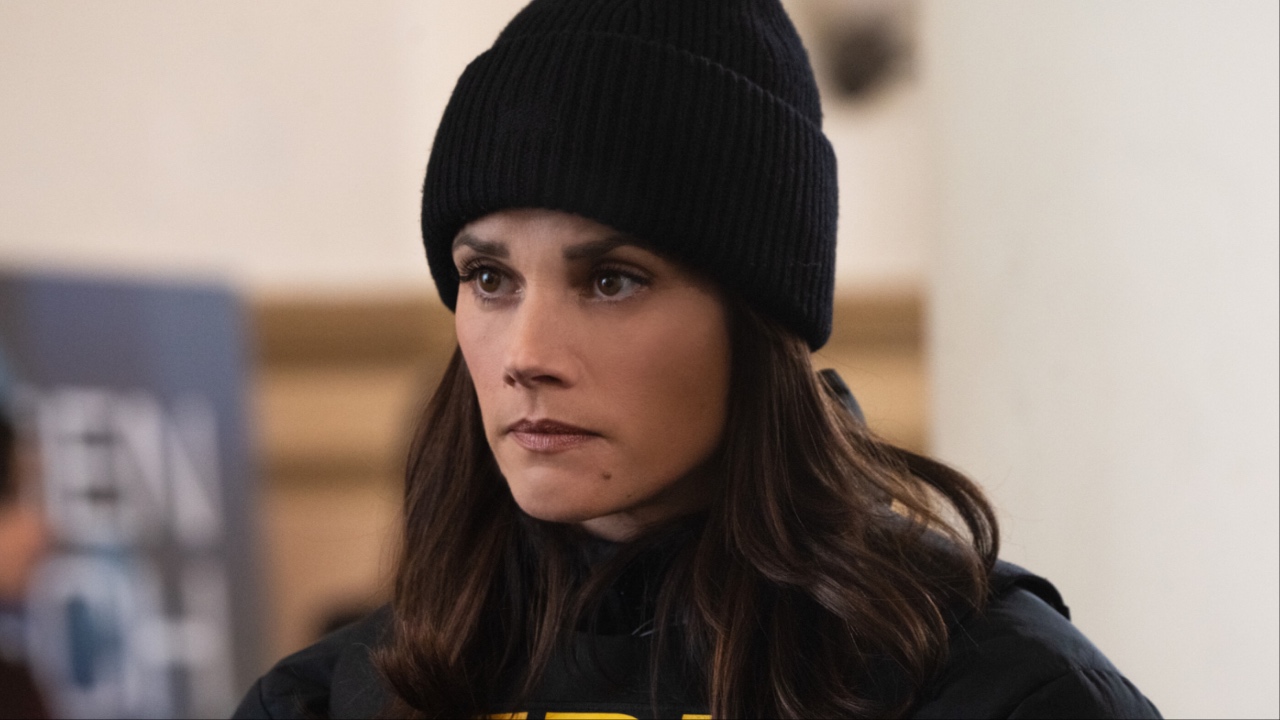Adapting Stephen King's The Dark Tower: The 2017 Movie Is An Insult To The Work Of Stephen King
An absolute disaster.
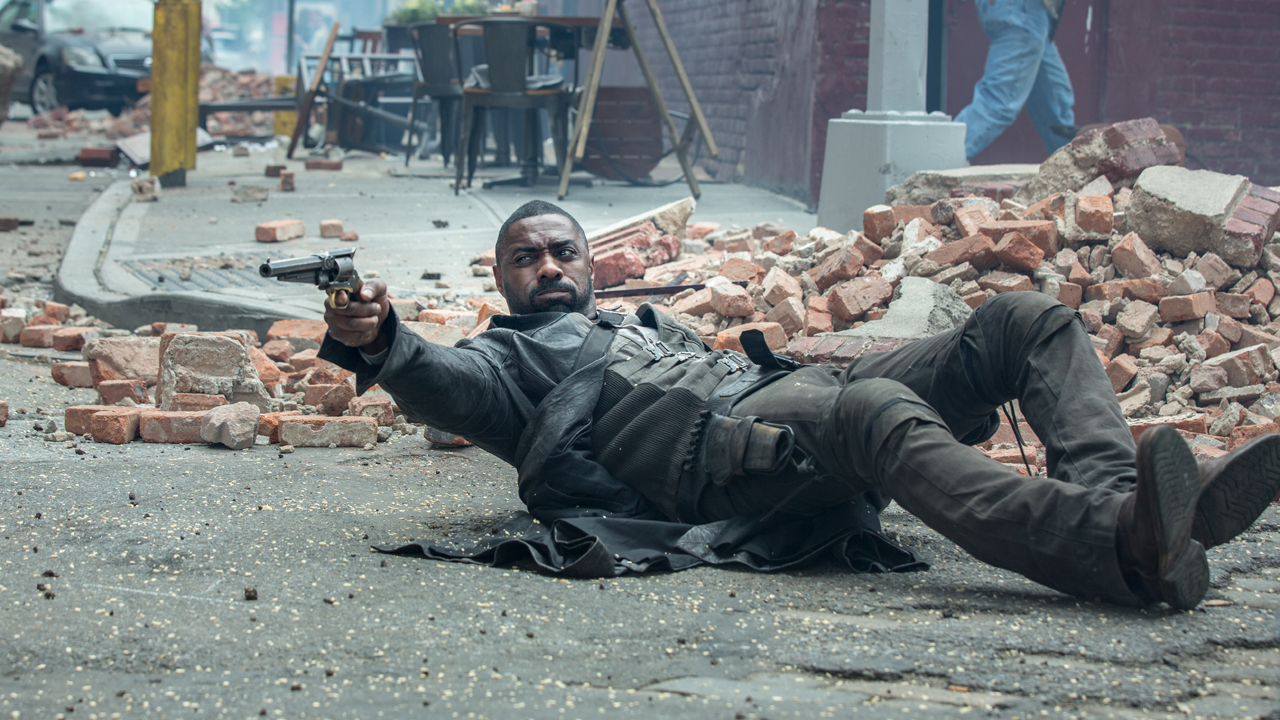
Stephen King’s Constant Readers are a passionate lot, and arguably the work they are most passionate about is The Dark Tower series. Blending western, sci-fi, fantasy, and horror genres, the books unfold a staggering epic that is awe-inspiring, gut-wrenching, and encompasses everything that King is about. Though viewed as controversial by some who don’t appreciate the way it concludes, it is also hailed as the author’s greatest achievement – and as such, it is powerfully frustrating that Hollywood has failed to produce a proper adaptation. Instead, all we have is Nikolaj Arcel's The Dark Tower from 2017, which is not just a bad film, but an utter disgrace.
Admittedly, it’s a movie that began development with perfect intentions. In 2010, NBC Universal announced remarkable and ambitious plans to bring Stephen King’s The Dark Tower to both the big and small screens. With Ron Howard directing and Akiva Goldsman writing, the idea was to adapt the books as a trilogy of films with seasons of a television series interspersed between them, bridging the story from one feature to the next. The strategy would have celebrated the scale of King’s work while also providing real estate that would ensure everything valuable in the source material would be included in the adaptation.
In the years that followed, some forward motion was made with this version of the project – such as casting Javier Bardem as protagonist Roland Deschain – but mostly everything just fell apart. By mid-2011, Universal backed out of their commitment to the franchise, and while Warner Bros. expressed interest temporarily about picking up the pieces, the studio took itself out of the running in August 2012. That was when Media Rights Capital stepped in, and they eventually partnered with Sony Pictures on the project in 2015.
It was as a Sony/MRC project that The Dark Tower finally grew some legs under it… but long gone were the plans to create something ambitious and worthy of Stephen King’s books. Nikolaj Arcel was hired to direct (the script credited to himself, Anders Thomas Jensen, Jeff Pinkner, and Akiva Goldsman), and with Idris Elba cast as Roland and Matthew McConaughey cast as the villainous Walter Padick/Randall Flagg/the man in black, the film went into production in 2016, and hit theaters about a year-and-a-half later on August 4, 2017.
The Dark Tower was a flop that got eviscerated by critics, and it’s a fate that the travesty wholly deserved. After decades of tremendous successes, Hollywood failed Stephen King in the worst way with the movie, and the depths of how are explored in this week’s Adapting Stephen King.
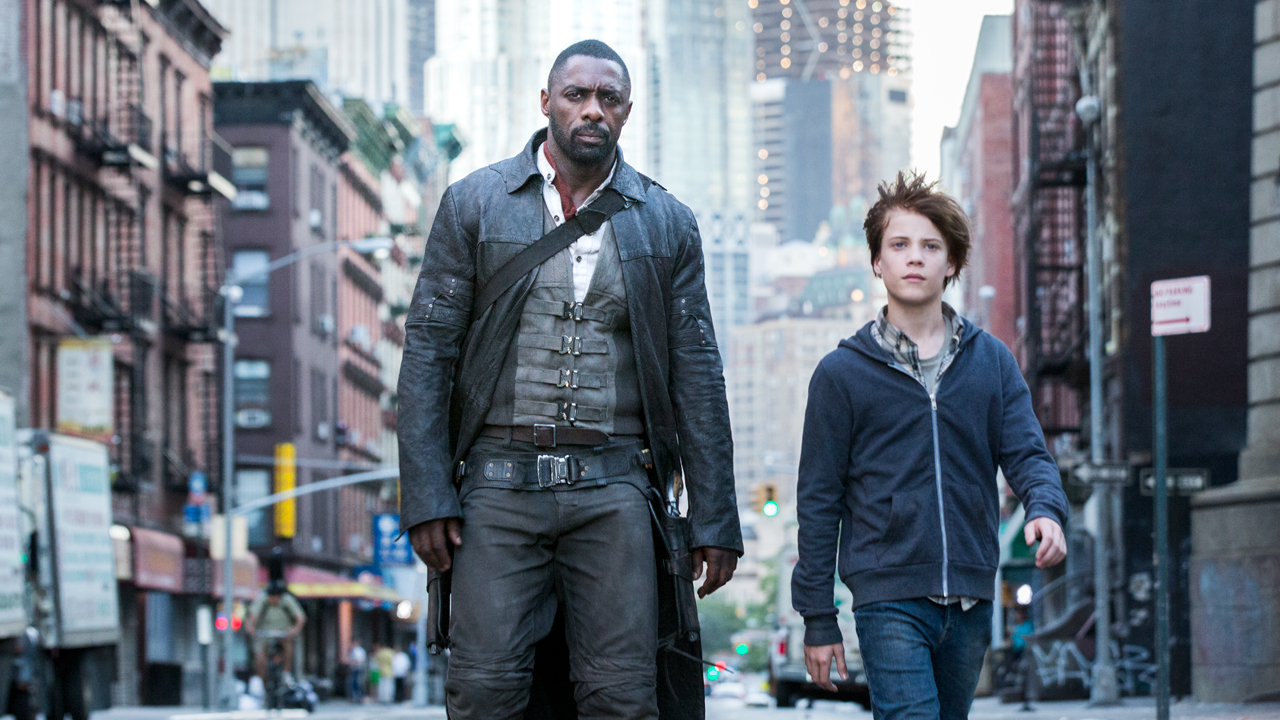
What The Dark Tower Is About
“The man in black fled across the desert, and the gunslinger followed.”
It was with that line that Stephen King embarked on what would be the most epic literary journey of his career. He was only 21 years old, a student at the University of Maine getting a BA in English, and he had a vision: to coalesce the Robert Browning poem “Childe Roland to the Dark Tower Came” with the iconography of director Sergio Leone’s The Man With No Name Trilogy and the scale of J.R.R. Tolkien’s The Lord Of The Rings. He conjured the stoic, determined, Clint Eastwood-esque hero Roland Deschain and set him with the task of chasing the villainous Man In Black through the desolation of Mid-World while questing to The Dark Tower – a titanic monolith standing at the center of the universe that anchors all realities.
CINEMABLEND NEWSLETTER
Your Daily Blend of Entertainment News
As he explains in Stephen King: The Art Of Darkness by Douglas E. Winter, the author’s original intention for the story was “a very long fantasy novel,” but that wasn’t how it initially found publication. Instead, the first five stories featuring Roland Deschain were featured in issues of The Magazine Of Fantasy And Science Fiction between 1978 and 1981 – the period when King’s fame was exploding with the release of books including The Stand, The Dead Zone, Firestarter and Cujo. It wasn’t until 1982 that the chapters of the story were edited together and published – with Rhode Island-based company Donald M. Grant printing just 10,000 copies of The Gunslinger.
Given the scale of the publication, most Stephen King readers were unaware of the book’s existence… but that changed in November 1983 with the release of Pet Sematary. The Gunslinger was listed among the writer’s other works in the front matter of the notorious horror novel, and curiosity about it exploded as Constant Readers demanded opportunity to read it. There was a clear hunger for the work, and after The Gunslinger got a second printing in 1984, plans were formed for The Dark Tower as a series of seven novels – with the second book, The Drawing Of The Three, getting published in 1987.
With The Drawing Of The Three and the subsequent book, 1991’s The Waste Lands, Stephen King united Roland Deschain with the companions who would ultimately join him on his quest for The Dark Tower: Eddie Dean, a heroin addict and criminal; Odetta Holmes, a wealthy civil rights activist with dissociative identity disorder; Jake Chambers, an eleven-year-old-boy; and Oy, a small dog-like creature called a Billy-Bumbler with limited speech capabilities. The characters formed a fated group referred to as a “ka-tet,” and they are some of King’s greatest creations.
The fourth book, Wizard And Glass was published in 1997, but urgency to complete the Dark Tower series changed at the turn of the century following the incident that saw Stephen King nearly killed when he was struck by an out-of-control van. According to Stephen King: A Complete Exploration Of His Work, Life And Influences by Bev Vincent, the author dedicated himself to completing the story in 2001 when he began a stretch of 16 months writing what would be the last three books he had planned: The Wolves Of The Calla, The Song Of Susannah, and The Dark Tower. He was left so exhausted by the process that he contemplated retirement after their publication in 2003 and 2004, but, fortunately for all of us, he ended up changing his mind.
Despite the Dark Tower series’ existence as a perfect whole, it’s a world to which Stephen King has continually returned – be it directly (such as with 2012’s The Wind Through The Keyhole) or more indirectly (such as with the Gwendy trilogy published between 2017 and 2022 with co-author Richard Chizmar).
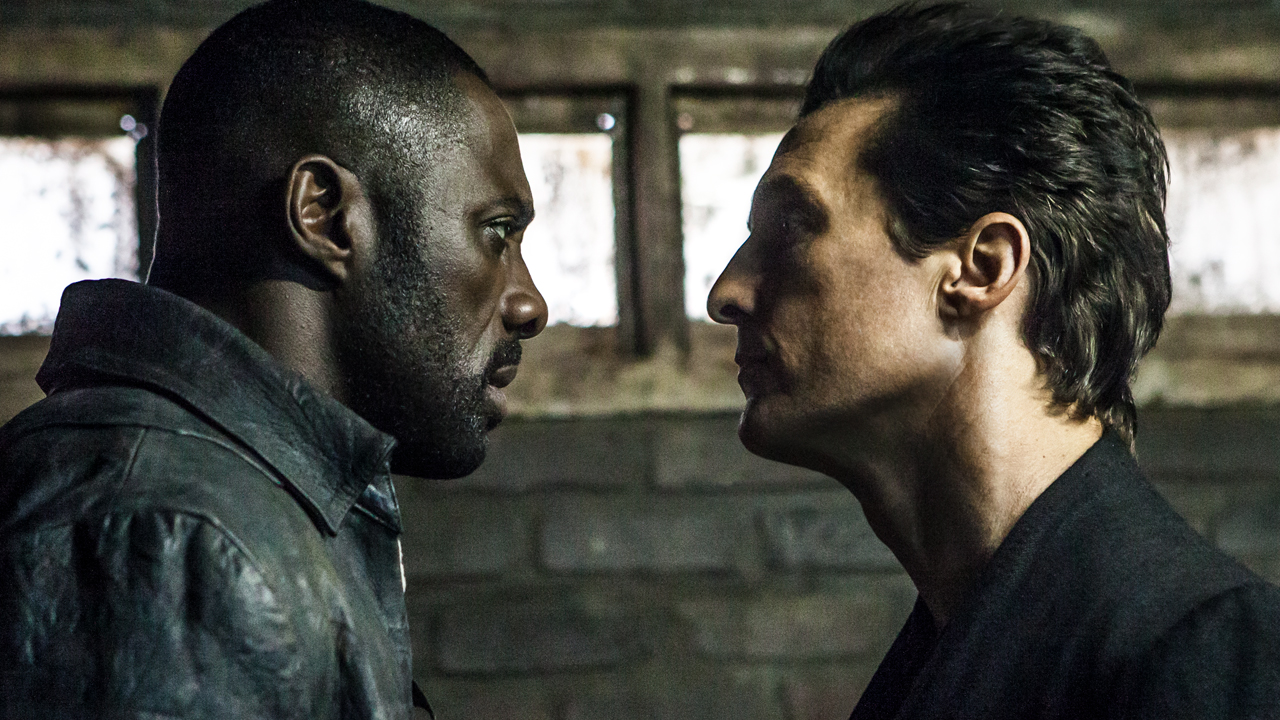
How Nikolaj Arcel's The Dark Tower Differs From Stephen King’s Books
Where the hell do I begin?
A lot of Stephen King adaptations have issues translating the author’s verbose storytelling sensibilities into the runtime of a standard feature film, but Nikolaj Arcel's The Dark Tower is in a class of its own in terms of incompetence and awfulness. This is a movie that attempts to condense seven epic tomes into 88 minutes (the runtime minus about seven minutes of end credits), and in doing so it drains the material of every ounce of its brilliance and depth.
Narratively speaking, the movie primarily borrows from The Waste Lands and The Dark Tower, which are the books A) where Jake Chambers (Tom Taylor) arrives in Mid-World, joining up with Roland (Idris Elba), and B) where the heroes attempt to stop psychic humans known as Breakers from destroying the Dark Tower. Those are thin elements within the context of the individual novels, but they are the most significant details that the film takes from the source material.
Instead of using what Stephen King wrote, The Dark Tower adaptation opts to change and simplify… with desecrating results. Case in point: this is a movie that removes Roland’s ineffable and unyielding drive to seek the Dark Tower (his literal reason for being), and instead makes his only motivation be a bland revenge mission targeting the man in black/Walter Padick (Matthew McConaughey) after Walter kills Roland’s father (Dennis Haysbert). Furthermore, the film clearly has no idea what to do with Jake’s story in the book, so the film takes a shortcut and just says that he is the universe’s most powerful breaker, putting a target on his back from the bad guys. It’s lazy, baffling, and horrible.
Everything compelling and fascinating from the text is dwindled down into absentia or nothingness – the most glaring and awful omissions being the entire ka-tet outside of Roland and Jake. There is no scale, texture or history in the depiction of Mid-World (a complex reality where time and direction have no meaning), and there isn’t even a single mention of ka – the all-important force that drives all things. Ultimately it’s as though the movie took anything that would have taken more than ten seconds to explain and dumped it in the trash.
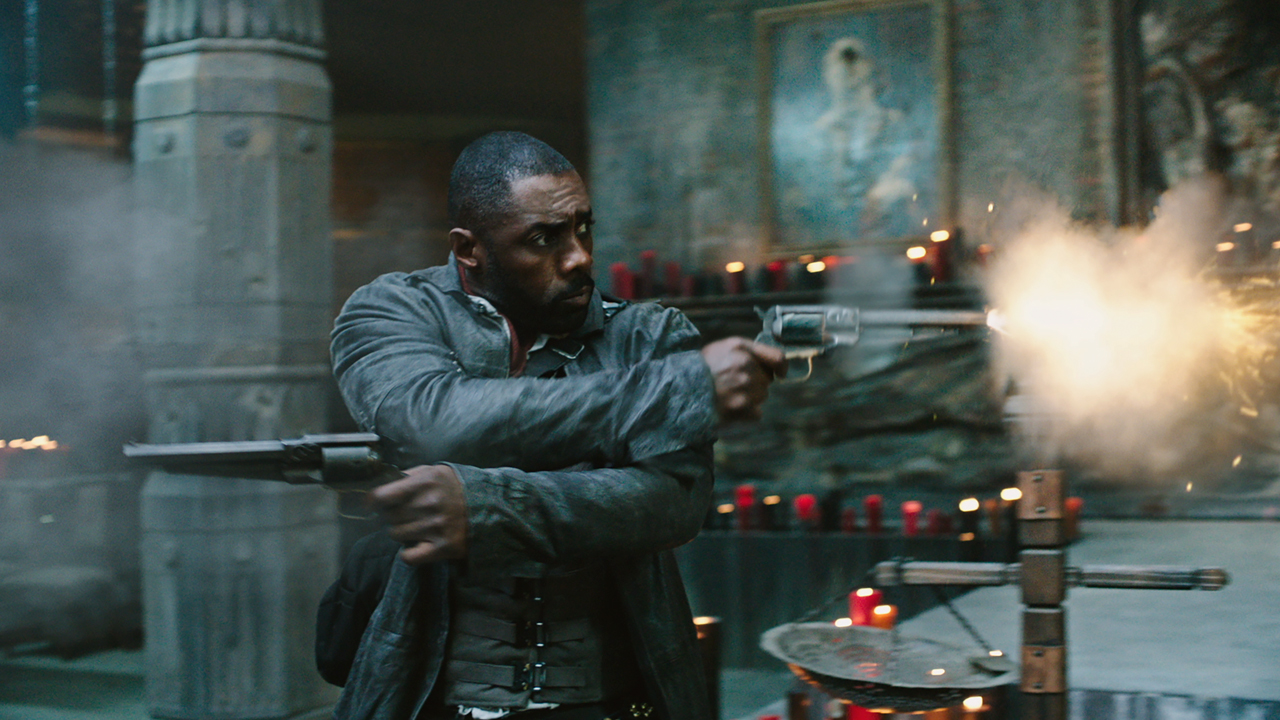
Is It Worthy Of The King?
It’s hard to say who Nikolaj Arcel’s The Dark Tower is made for. It’s certainly not for Stephen King fans. Nobody who loves the books could possibly look at the movie and view it as a proper and satisfactory interpretation. It skips over and ignores far too much, and desperately tries to make up for it with various Easter eggs and details from the broader King Universe – such as Jake having a toy Christine and characters walking through a destroyed carnival with a Pennywise sign.
That just leaves the potential audience with the non-Constant Readers, and there is nothing for them here either. With the material sanded down as it is, the movie is just mind-numbingly dull and feels like a scattershot collection of tropes from young adult fiction (which is not a genre to which Stephen King’s novels belong). Despite what I think of as solid casting with Idris Elba and Matthew McConaughey, the characters have no unique vibrancy. Roland and Walter are empty caricatures of who they are on the page and invite no emotional investment.
Speaking with Entertainment Weekly in December of 2017 (about four months after The Dark Tower’s theatrical release), Stephen King attributed the film’s poor results to the misguided attempt to produce the adaptation as a PG-13 tent pole blockbuster. He notes that the story lost a “toughness” not being able to go for a more adult rating, but that’s only part of it. The movie is a failure to dumb down the material for a lowest common denominator audience, and King’s work is just far too cerebral and dense for that treatment.
The greatest sin of Nikolaj Arcel’s The Dark Tower is the idea that someone might point to it as an example of why Stephen King’s most impressive work can never be properly adapted – and that simply isn’t fair. The series of novels is infinitely better than anything this faux blockbuster pretends to be, and while Hollywood has not yet been able to properly see the phenomenal potential, Constant Readers are perfectly aware of it, and we’ll never give up hope of seeing the adaptation that the epic deserves.
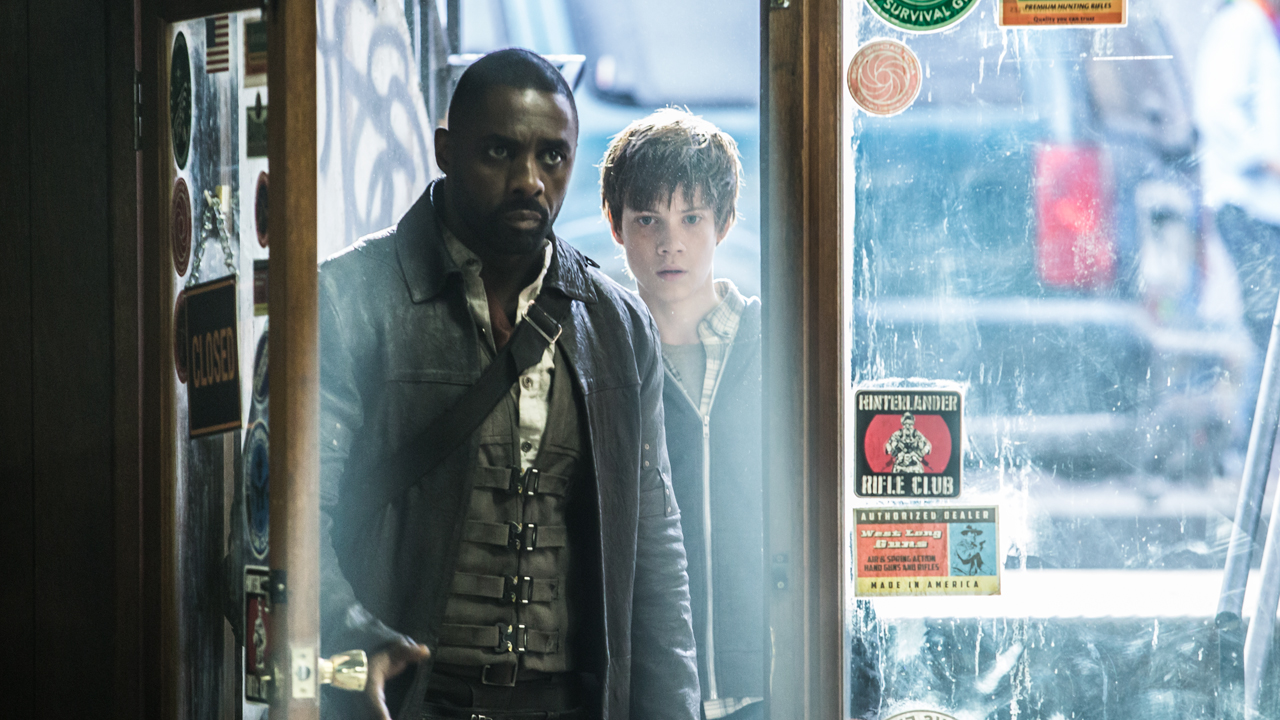
How To Watch Nikolaj Arcel's The Dark Tower
For all of you masochists out there, Nikolaj Arcel's The Dark Tower is an easy title to find and watch online. Amazon, Google Play, Vudu, and Apple all have the movie available for both rental and purchase. If you’re a physical media completest looking to build the Ultimate Stephen King collection, the film is available on 4K.
Thankfully, next week’s edition of Adapting Stephen King will be more celebratory instead of depressing, as it’s almost time to talk about the best on-going series adaptation of King’s work to date. Come Wednesday, I’ll be taking a close look at Mr. Mercedes – the show that debuted on Audience in 2017 based on the 2014 novel (and trilogy-starter) of the same name. Look for it in the CinemaBlend TV section, and in the meantime explore all of the previous installments of this column by clicking through the banners below.







Eric Eisenberg is the Assistant Managing Editor at CinemaBlend. After graduating Boston University and earning a bachelor’s degree in journalism, he took a part-time job as a staff writer for CinemaBlend, and after six months was offered the opportunity to move to Los Angeles and take on a newly created West Coast Editor position. Over a decade later, he's continuing to advance his interests and expertise. In addition to conducting filmmaker interviews and contributing to the news and feature content of the site, Eric also oversees the Movie Reviews section, writes the the weekend box office report (published Sundays), and is the site's resident Stephen King expert. He has two King-related columns.
